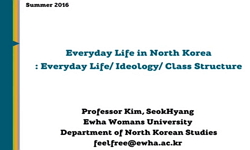본 논문은 미-중-북한 간 핵무기 경쟁의 사례 연구를 통해 <다자 간 안보 딜레마의 수평적 확산>이라는 새로운 개념을 제시한다. 기존의 안보 딜레마 개념이 양자 관계에서의 군사적 긴...
http://chineseinput.net/에서 pinyin(병음)방식으로 중국어를 변환할 수 있습니다.
변환된 중국어를 복사하여 사용하시면 됩니다.
- 中文 을 입력하시려면 zhongwen을 입력하시고 space를누르시면됩니다.
- 北京 을 입력하시려면 beijing을 입력하시고 space를 누르시면 됩니다.

새로운 안보 딜레마 개념과 북-중-미 핵경쟁 사례 = A New Concept of Security Dilemma: the Case of Nuclear Competitions among China, the United States, and North Korea
한글로보기부가정보
국문 초록 (Abstract)
본 논문은 미-중-북한 간 핵무기 경쟁의 사례 연구를 통해 <다자 간 안보 딜레마의 수평적 확산>이라는 새로운 개념을 제시한다. 기존의 안보 딜레마 개념이 양자 관계에서의 군사적 긴장이 수직적으로 고조되는 현상을 묘사했다면, 본고는 다자 간 관계에서 안보 딜레마가 수평적으로 확산되는 패턴을 묘사한다. 중국 전략가들은 미국의 대북 조치를 사실상 중국을 겨냥한 것으로 해석하는 경향이 있으며, 이는 북한 문제를 둘러싼 미-중 간 상호 불신과 전략적 계산이 맞물려 나타나는 현상임을 보여준다. 이론적으로, 본 논문이 제시하는 새로운 안보 딜레마 개념은 현실주의 국제정치 이론의 맥락에서 미-중 경쟁이 구조적으로 악화되는 경향을 보완 설명한다. 중국은 북한의 문제에 수동적으로 연루될 때도 있지만, 적극적으로 자신의 문제로 인식하는 경우도 있다. 본고는 후자의 경우- 즉, ‘자기문제화’ 현상- 을 새로운 안보 딜레마 개념을 통해 설명할 수 있다. 방법론적으로, 본 연구는 개념화(conceptualization) 작업의 중요성을 강조하며, 개념의 정교화가 이론 발전의 필수적인 선행 단계임을 논의한다. 정책적으로, 필자는 한국의 외교전략이 미-중 간 전략 소통 과정에서 보다 적극적인 역할을 할 수 있음을 강조한다.
다국어 초록 (Multilingual Abstract)
This paper introduces a new concept, the horizontal diffusion of a multilateral security dilemma, through a case study of nuclear competition among the U.S., China, and North Korea. While the traditional concept of security dilemma describes the verti...
This paper introduces a new concept, the horizontal diffusion of a multilateral security dilemma, through a case study of nuclear competition among the U.S., China, and North Korea. While the traditional concept of security dilemma describes the vertical escalation of military tensions in bilateral relations, this study illustrates how security dilemma can diffuse horizontally in a multilateral context. Chinese strategists tend to interpret U.S. measures against North Korea as being, in effect, aimed at China. This phenomenon reflects the interplay of mutual distrust and strategic calculations between the U.S. and China regarding North Korea. Theoretically, the new security dilemma concept proposed in this paper helps explain the structural deterioration of U.S.-China competition within the framework of realist international relations theory. While China sometimes finds itself passively entrapped in North Korea-related issues, it also actively perceives them as its own problem. This paper argues that the latter case—what it terms “self-problematization"—can be explained through the new security dilemma framework. Methodologically, this study underscores the importance of conceptualization, arguing that refining concepts is an essential prerequisite for theoretical advancement. In terms of policy implications, the paper highlights the potential for South Korea to play a more proactive role in the strategic communication process between the U.S. and China.
동일학술지(권/호) 다른 논문
-
애증의 북중관계를 보는 분석의 틀: 구체와 추상의 변증
- 경남대학교 극동문제연구소
- 이희옥
- 2025
- KCI등재
-
북핵 문제와 중국의 전략적 내러티브: 대북 정책 정당화와 국제안보질서의 재구성
- 경남대학교 극동문제연구소
- 강수정
- 2025
- KCI등재
-
김정은・시진핑 시기 외교적 수사와 북중관계의 전략적 상이성
- 경남대학교 극동문제연구소
- 김규범
- 2025
- KCI등재
-
- 경남대학교 극동문제연구소
- 김한권
- 2025
- KCI등재




 KCI
KCI DBpia
DBpia






